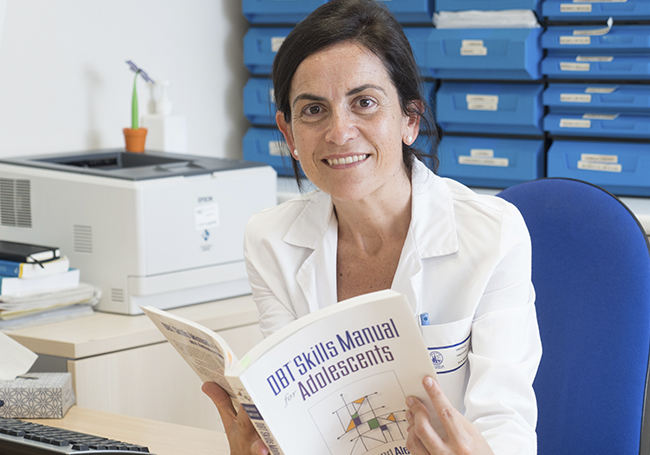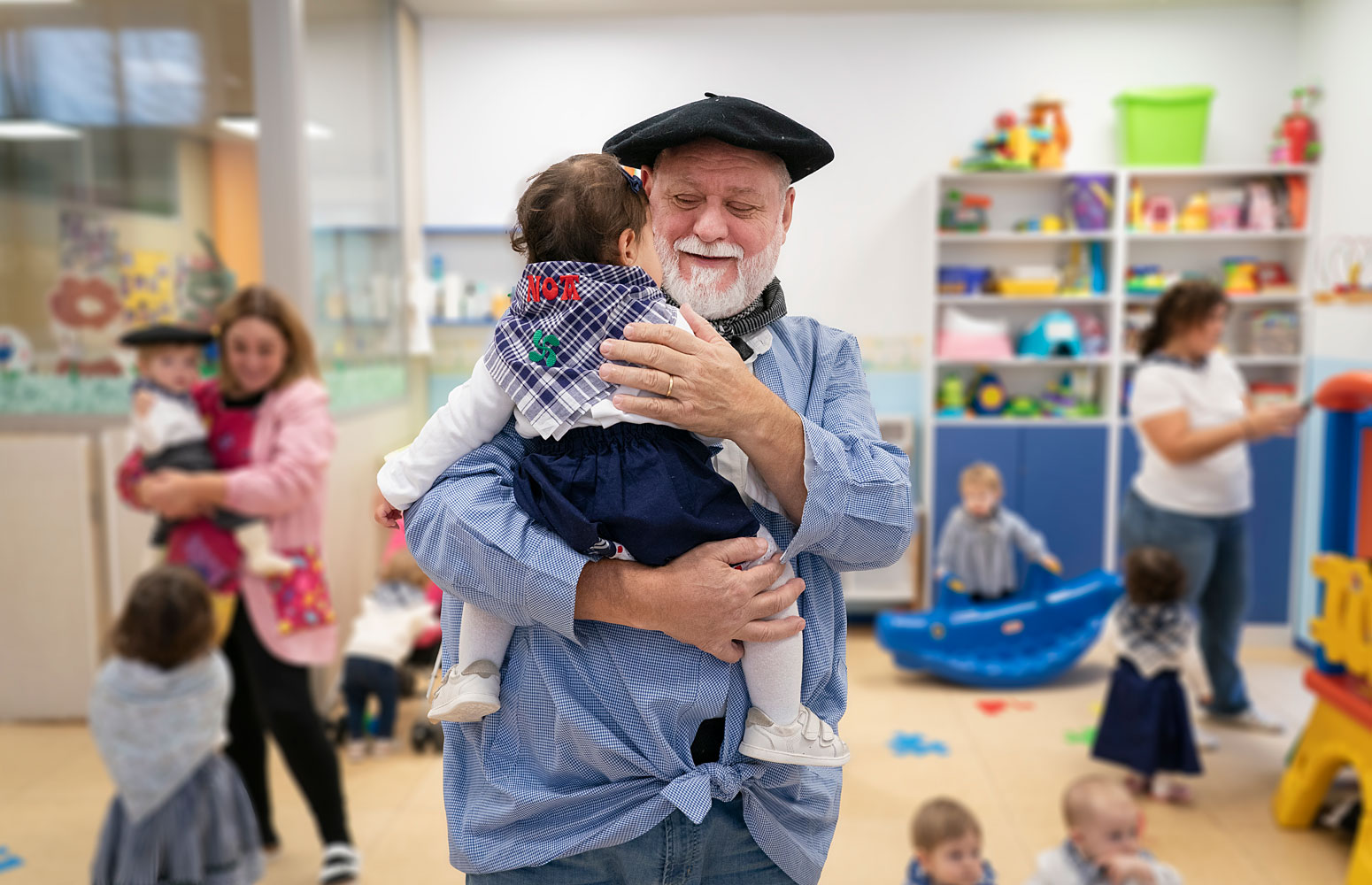By analysing the discourse of adolescents with behavioural problems and who have completed training in psychosocial skills based on Dialectical Behaviour Therapy (DBT), a study by the Psychiatric Service of the University Hospital of Basurto and the UPV/EHU’s Department of Neurosciences has assessed the effectiveness of this psychotherapeutic tool from a qualitative perspective. The participants’ testimonies show that they value it in a very positive way and even suggest that it be used on the healthy population.
Adolescents testify to the usefulness of psychotherapy to treat behavioural problems
The Hospital of Basurto and the UPV/EHU-University of the Basque Country are studying the subjective experience of adolescents following their DBT-based training in psychosocial skills
- Research
First publication date: 08/08/2018

Training in psychosocial skills in accordance with the DBT model has proven to be effective for adolescents with behavioural problems. Dialectical Behaviour Therapy was developed to Marsha Linehan to treat Borderline Personality Disorder whose core feature is emotional dysregulation. It is a multi-component therapy that includes in addition to training in psychosocial skills for a group of patients –the target in this piece of research-, another raft of components such as individual psychotherapy, group training in psychosocial skills for families, telephone coaching and the supervision team.
“There is a lot of bibliography of a quantitative nature showing the effectiveness of this component of the therapy in reducing both the internalising and externalising symptomatology in adolescents with behavioural problems,” said Eva Sesma-Pardo, a psychiatrist in the Child and Adolescent Psychiatric Unit of the Psychiatric Service of the University Hospital of Basurto and a co-author of the study. Yet "in the bibliography there have to date been no studies conducted on the adolescent population to assess DBT-based psychosocial skills from the qualitative perspective, which is the starting point of our research. This therapeutic intervention has been carried out since January 2010 at the Child and Adolescent Psychiatric Unit of the Psychiatric Service of the University Hospital of Basurto, the only public care centre in Spain with a comprehensive DBT programme for adolescents as well as adults,” she added.
To conduct the research, they opted for the technique of focus groups in qualitative methodology, and invited groups of adolescents who had completed the training in psychosocial skills (DBT), good informants, to participate in order to get to know their subjective experience about this DBT component. In the focus groups, the participants talked about their experience in terms of their experience of the disorder, motivation for therapy, experience of the therapy and its outcomes.
A positive, tremendously useful experience
With respect to the outcomes, the research team has indicated that the participants, on the whole, greatly value the training team in psychosocial skills (DBT). As Sesma pointed out, “they recognise that after passing through the training group their behavioural problems and internalising symptomology improve. They are in no doubt that the actual motivational component of DBT helps them to build their own motivation for change and active involvement in the treatment, factors that they regard as essential for the therapy to be effective. If there is no self-motivation for change, the therapy won’t work”.
The researcher stressed that “besides acquiring skills for handling their unease in crisis situations after they have been through the group experience, they say that, as a result of this training, they experience intrapsychic changes, such as an improvement in their capacity to reflect; this allows them to theorize about the difficulties that emerged in the past and to understand themselves better in the present. They say that the changes can emerge some time after the end of the group therapy”.
Beyond reporting the usefulness of the group intervention for adolescents with behavioural problems, “the participating group itself recommends it be used on the healthy population. This is a very interesting point as DBT has recently been adapted for use in the school ambit so that it can be included in the socio-emotional curriculum. Right now, a pilot project is being run. It is led by the Psychiatric Service of the University Hospital of Basurto and funded by the Department of Education of the Basque Government with a view to training teachers in certain schools in Bizkaia in this adaptation. The plan is to subsequently include it as another subject in education, and thus be able to teach skills to help adolescent students to adaptively handle difficult situations or a range of problems in their everyday lives, which would help them to feel better and enable them to perform better academically,” she concluded.
Additional information
Eva Sesma-Pardo (Barakaldo, 1980) is a psychiatrist in the Child and Adolescent Psychiatric Unit of the University Hospital of Basurto, and did this research within the framework of her PhD thesis, defended at the UPV/EHU. It was supervised by Miguel Ángel González-Torres, Head of the Psychiatric Service of the University Hospital of Basurto and Tenured Lecturer in the UPV/EHU’s Department of Neurosciences, and Aránzazu Fernández-Rivas, Section Head of Child and Adolescent Psychiatry of the University Hospital of Basurto and assistant lecturer in the UPV/EHU’s Department of Neurosciences.






